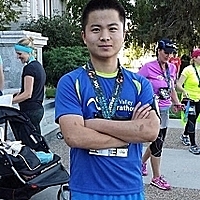Menu
- Undergraduate
- Graduate
- Foreign Study
- Research
- Inclusivity
- News & Events
- People
Back to Top Nav
Back to Top Nav
Back to Top Nav
Back to Top Nav
Back to Top Nav
Title: "Persistent Currents in an Ultracold Fermi Gas"

A 2D-3D dual magneto-optical trap and grey molasses cooling are first used to capture about 2.5 x 10^8 atoms at 50 uK. These atoms are loaded into a crossed beam dipole trap and then transported into the science cell using a movable optical dipole trap. Afterwards, the atoms are transferred into a narrow ring dimple potential with 14 um radius and ~2.5 um half-width, and then evaporatively cooled to form a superfluid with ~8000 6Li_2 molecules. Persistent currents are then initialized with a rotating barrier. We measure the lifetime of the persistent currents, characterize the current response of the ring superfluid to rotation, and the current stability in the presence of a weak link. A robust detection procedure is implemented to reliably distinguish different current states.
Using the Feshbach resonance, we can reversibly cross the superfluid transition by sweeping the magnetic field. Persistent currents decay when the superfluid becomes normal. We also find initial evidence of the Little-Parks effect, which is the formation of persistent currents when the normal fluid with sufficient angular momentum goes through the superfluid phase transition. Spontaneous formation of persistent currents due to Kibble-Zurek mechanism are also observed when the superfluid transition is crossed at a fast rate.
This work is the first realization of persistent currents in ultracold fermionic atoms. It extends our knowledge of persistent currents in fermionic systems and provides a new tool for probing many interesting properties of fermionic superfluids.
Events are free and open to the public unless otherwise noted.